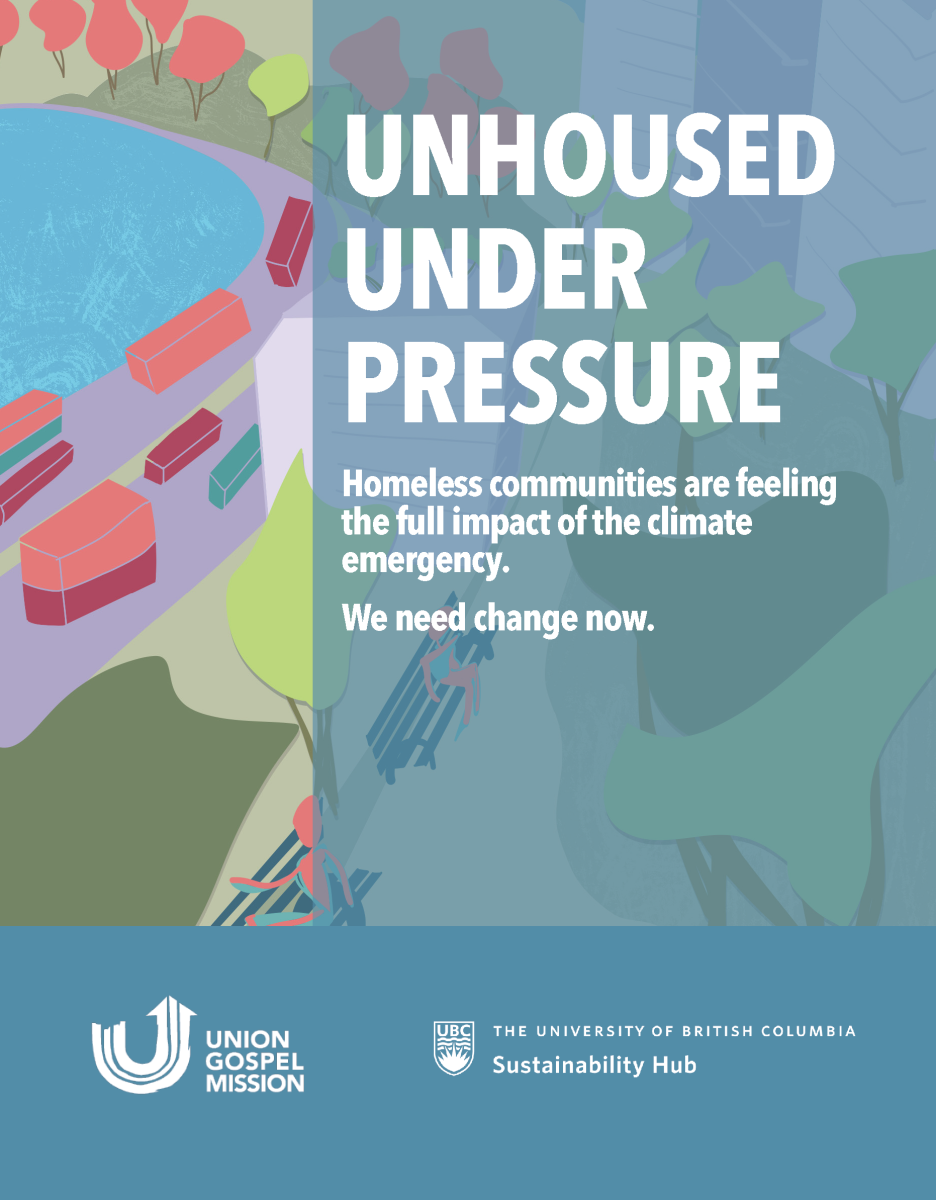
New Sustainability Scholars report produced in partnership with Union Gospel Mission shows that unhoused people in Vancouver's Downtown Eastside (DTES) experience significantly more detrimental health impacts when facing extreme heat and extreme cold.
When it comes to climate crisis, homeless communities in the DTES are impacted most.
Focusing on Vancouver's Downtown Eastside (DTES) community, ‘Unhoused Under Pressure’ draws on academic literature, interviews with City of Vancouver staff, and published experiential accounts to explore the intersection of the climate crisis and housing crisis.
The report was written by UBC Sustainability Scholar Taryn Plater in collaboration with UBC’s Sustainability Hub and Union Gospel Mission Vancouver. Aiming first to understand the DTES community's climate-related challenges, needs, and resources, the report then offers recommendations for municipal policy and action to improve climate-related health equity for people experiencing homelessness in the DTES.
“My allergies act up, and my breathing gets more difficult.
Pollution is a deterrent, a negative influence, but I don’t have a choice to change my behavior when I live out here.
I’m just stuck with it. We all are.”
– DJ O’Brien, DTES Community Member
‘Unhoused Under Pressure’ highlights seven focus areas, connected to already-existing municipal policies, that could lessen the impact of the climate crisis within the DTES community. As surfaced in the report, the city of Vancouver has the tools and strategies to make life-saving changes in the following areas:
• Decreasing exposure
• Providing access to water
• Prioritizing accessible and welcoming emergency spaces
• Prioritizing portable solutions
• Empowering DTES networks
• Streamlining access to funding
• Increasing urban greening
The report also features action steps and recommendations for the City of Vancouver to commit to and implement as soon as possible to mitigate the damage of climate change.
“While I have often considered the correlation between climate change and homelessness, this report provided a new layer of insight that demonstrates causation."
While changes in climate touch us all, as is usually the case, those who have the least means to deal with the negative consequences are the most affected. UGM must put this knowledge at the core of our program decisions so that we can best serve community members, while also ensuring our corporate behaviour is as environmentally friendly as possible.”
– Dean Kurpjuweit, President, Union Gospel Mission
Calling for actions such as decreasing exposure to the elements, increasing access to water, and making emergency spaces inclusive and inviting will enable better health outcomes for unhoused community members.
The report was produced as part of the CLEAR (Climate Equity Action and Resilience) project, supported by the McConnell Foundation, the City of Vancouver, and UBC.
MEDIA COVERAGE
Released at UGM’s Summer Connect event on June 12, 2024, ‘Unhoused Under Pressure’ received coverage from CBC News, CBC Vancouver, CBC On The Coast, CityNews, CTV News, and The Tyee.
Story adapted from Union Gospel Mission.
“This report is a call for urgent, equitable action, and targeted interventions to reduce exposure, provide vital access to water, and create more accessible and welcoming emergency spaces. Integrating the report’s findings into Vancouver's climate action strategies is essential.”
– Linda Nowlan, Senior Director, UBC Sustainability Hub
